The New Normal Hong Kong – breaking the stigma around mental health through acceptance, understanding and unity
Through peer support meetings, TNN is leading the charge to break the stigma surrounding mental health in Hong Kong.
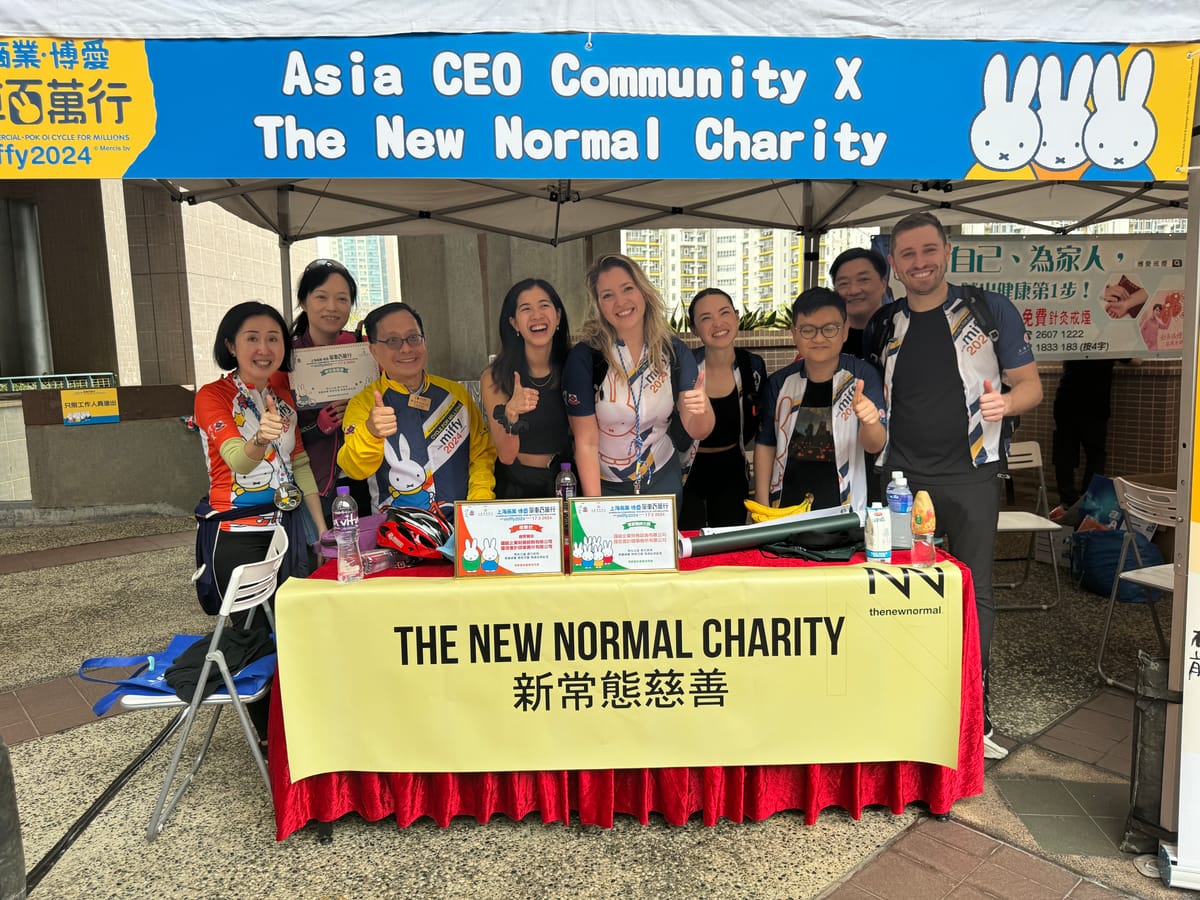
A few minutes every morning is all you need.
Stay up to date on the world's Headlines and Human Stories. It's fun, it's factual, it's fluff-free.
Living in the concrete jungle of Hong Kong, have you ever craved a free and empathetic space for mental health support? That’s exactly what Jess Hulton, director of The New Normal Hong Kong (TNN), has been working on. Through peer support meetings, she is leading the charge to break the stigma surrounding mental health so prevalent in the city.
Originally established in the UK in 2018, The New Normal started with peer support groups for anyone who had experienced a loss. The meetings brought like-minded adults together to share their experiences with grief openly. Since then, meetings have expanded to cover other topics, demographics and regions, including the Americas and Hong Kong, filling a public need for community-based mental health support. Hulton brought the concept to Hong Kong after she moved to the city in 2021, and now she serves as the Hong Kong lead for The New Normal’s Hong Kong peer support groups, such as Good Grief, Healing Hearts, Cantonese mental health groups and mindful events like group yoga and more.
TMS sat down with Hulton to understand her journey of building a community for those who seek peer support and tackling the stigma surrounding mental health in Hong Kong.
Grasp the silver lining
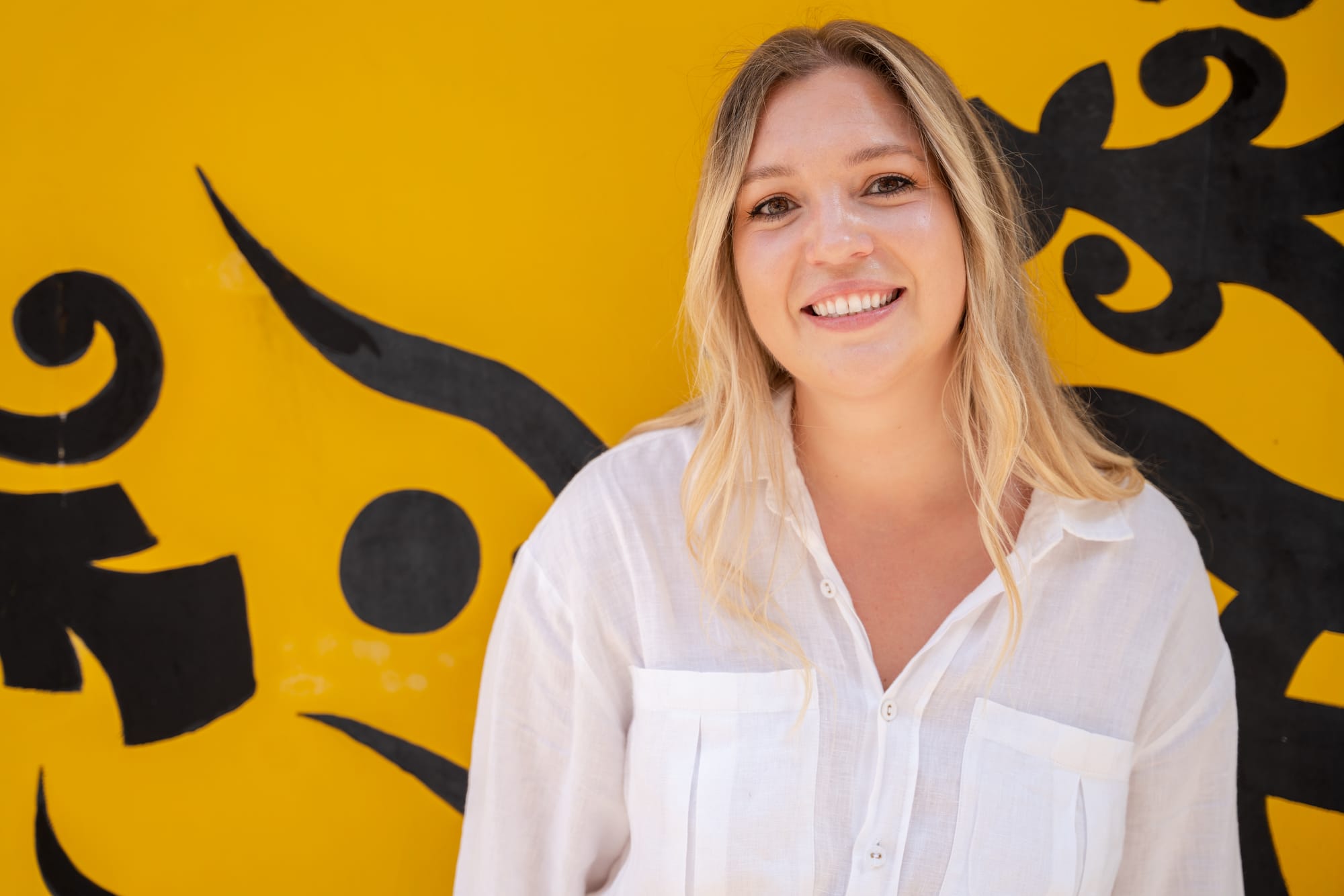
Originally from Manchester, Hulton was living in the US until learning terrible news – her father was terminally ill. This led her to move back home to help her mother care for him. As her brother was a key worker and had to stay separate, it was up to just the two of them. At the time, in the face of the COVID pandemic, it was especially hard to find caregiver support from the overwhelmed public health system in the UK.
“I saw things I felt too young to witness. For example, on the day he died, we had to wait hours for medical help to come,” Hulton says. “I found caring for him at the end of his life and losing him deeply isolating and distressing.” Despite seeking mental health support after he passed, Hulton was told she’d be waiting at least nine months unless she was “in crisis.”
As she struggled to cope, she “by chance” came across Ben May on Instagram, one of the founders of The New Normal. He and co-founder Jack Baxter had initially bonded in a barbershop over the loss of their fathers, and that eventually led to their launching support groups that became the basis for TNN. After losing her father, Hulton attended one of their online peer support groups called “Good Grief.” It was a game-changer.
“I realized all I really needed was for someone to say to me, ‘I was you, and I promise you things will get better.’ I remember thinking, ‘This is it; this is what is going to help me,’” says Hulton. “Peer support groups are so different because they are relatable; you meet people just like you, and you think to yourself, ‘If they can do it, why can’t I?’”
They say every cloud has a silver lining if you look hard enough. For Hulton, she found it in the tragedy of her dad’s death. Since then, peer support has been a source of hope for her, and it became a passion project when she brought the concept with her to Hong Kong.
“How can you challenge stigma in Hong Kong?”
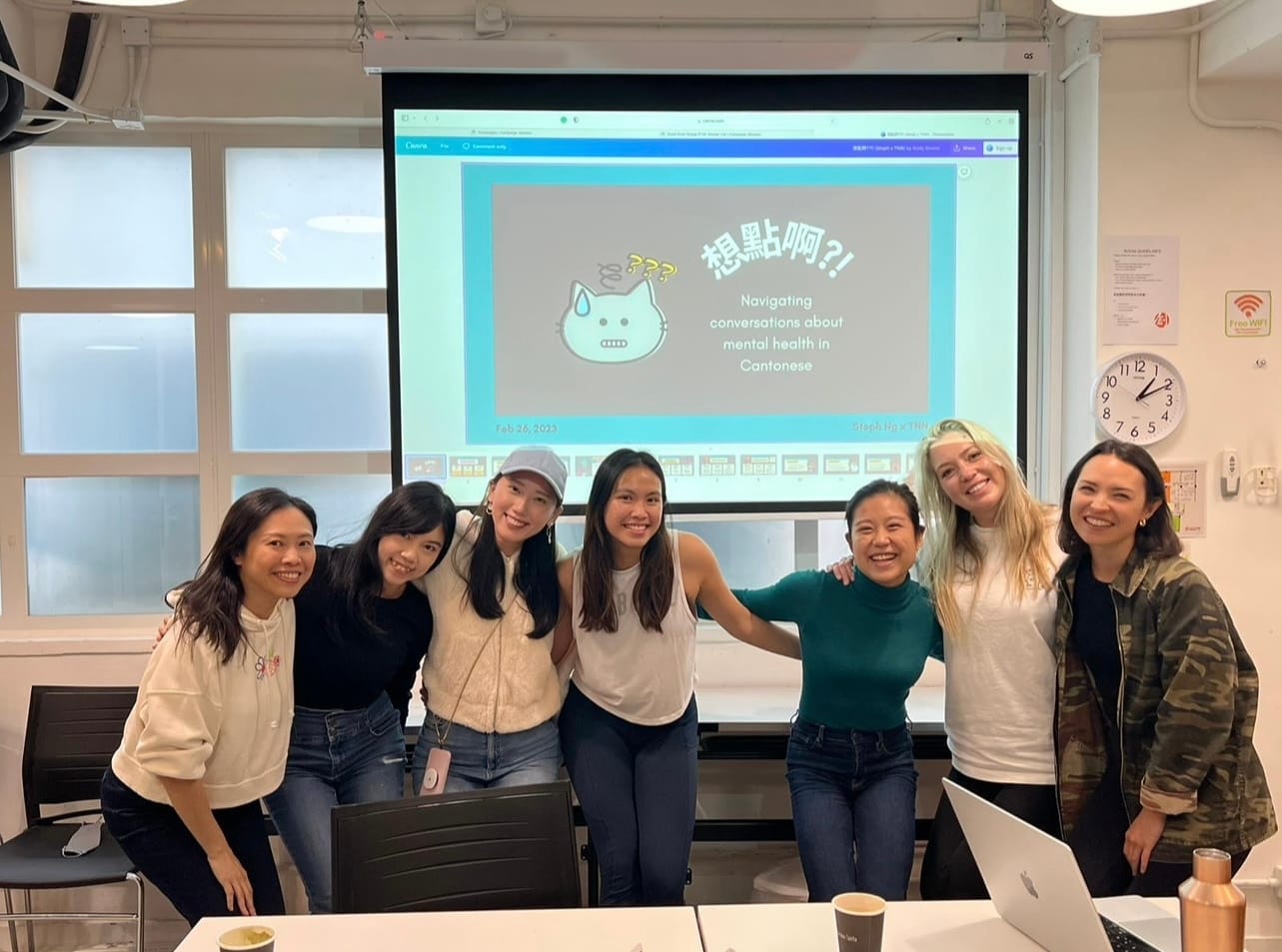
After finding comfort from the TNN peer support groups in the UK, Hulton sought to find a similar solace when she moved away, but to no avail. “I moved to Hong Kong in 2021 and struggled to find something that fit,” she says. So naturally, Hulton wondered if there was space in the city for something like TNN. But she also began to realize that the attitude towards therapy and other mental health topics could be drastically different in different parts of the world.
“I used to live in California, and I remember feeling so amazed by the way people shared,” Hulton says. “You can say, ‘I just came from a therapy session,’ and that’s considered normal and applauded. In some places, my home town and Hong Kong included, if you say that you went to therapy, the fear is that people might think there is something wrong with you. Mental health can be seen as a ‘problem.’
She shared her idea in the gym one day with Désirée Fong, who now sits on the board for TNN Hong Kong. “She was one of the first people who shared the vision and decided to help me, along with many other incredible volunteers along the way,” Hulton says.
But it came with a bit of a reality check. Fong asked Hulton: “You’re white and blonde. How are you going to go about creating something to challenge stigma in Hong Kong?”
The solution? Localization. Hulton sees this as one of the biggest steps she and her colleagues took toward breaking that stigma and adapting to the local culture. “I, perhaps naively, made the assumption that the concept would easily translate,” she recalls. From cultural norms to language barriers, Hulton came to learn that there wasn’t a universal understanding of mental health.
“I soon realized that our groups had much more potential than I ever imagined,” she says. “It was important to me from the start to make sure our groups launched in Cantonese as well as English.
“When we started formulating our Cantonese speaking groups, our volunteers would say that they find it harder to talk about mental health because they don’t have the immediate vocabulary to describe how they’re feeling, often switching into English,” Hulton says. But she and her team soon helped bridge that loss in translation. Cooperating with local language experts to break down the Cantonese terms, the team worked efficiently to navigate the challenge.
“We spent a long time finding the right people to help launch our Cantonese groups, and I am really proud of how much thought and time went into the launch from our team.”
Open wounds can heal
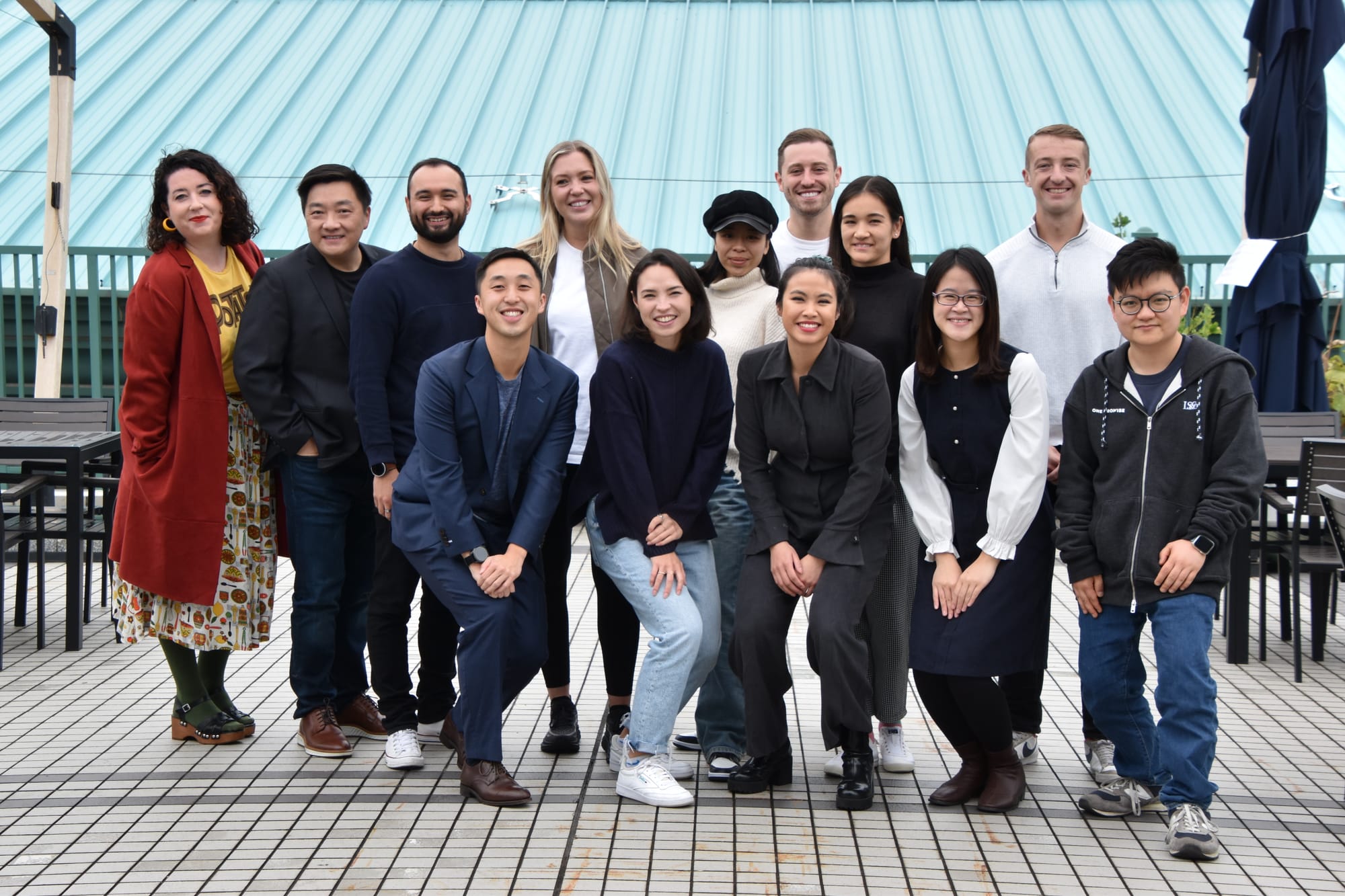
Imagine a room full of people from all walks of life gathered together to share, listen and connect over their personal experiences. You'll find this in each TNN peer support meeting.
“Peer support groups are simply a supportive and judgment-free space for people to come together to talk about life’s most difficult challenges, ” Hulton says. “No one is there to give advice or tell you what to do; it is a place to listen, share and connect.”
In this supportive space, people are healed by sharing their lived experiences. “I think many of us grew up in households where we don’t really talk about emotions, myself included,” Hulton says. “And so part of what we do with our peer support is just getting people to talk about how they're feeling their emotions.”
It’s true that it isn’t always easy to talk about emotions. Vulnerability can be difficult for anyone. Maybe it’s the feeling of not wanting others to worry. Judgment and shame are also common emotions felt by those reluctant to share, according to Hulton. But with peer support comes the manifestation of an atmosphere of empathy, acceptance and understanding. “I look across at a person in a group and think to myself, ‘If you can get through this, so can I,’” says Hulton.
Sure, stepping into that realm of vulnerability can be a challenge. One may not want to do it right away. That, too, is acknowledged by Hulton. Peer support groups are also a place for people to just come and listen. To hear the stories others have to share. With that resonance comes comfort.
“After listening to the stories of other participants, I also began to feel comfortable talking about my thoughts,” recalls an attendee of TNN’s support groups. “I also realize that there are actually many people who have experienced similar things as me, and I think most of us just want to find someone to talk to or someone who can understand our thoughts.”
“People can, perhaps for the first time, feel accepted and understood,” says Hulton. “We meet people who have never talked about what they are experiencing, and we witness them sharing for the first time and finding that understanding and acceptance.
“What is so unique about Hong Kong is that we meet people from all walks of life – our youngest attendee is 18 and our oldest 68 – and we meet people from different backgrounds, beliefs and value systems. And while that can be a challenge from the perspective of group dynamics, I think it shows how much connects us rather than sets us apart.”
In addition to breaking down stigma, the groups can also act as a bridge, connecting people to other support systems and easing the process of seeking professional help. All it takes is that first step.
“Once you're more comfortable talking about your emotions, people can become more comfortable talking to a professional, your loved ones or other services about it,” Hulton says.
The impact of these meetings has been astounding. Hulton explains that 73% of TNN’s attendees feel more hopeful about their situation after attending groups. They find comfort in opening up about their mental health. Not only that, feel a stronger connection to those around them. In addition, TNN hosts are trained to identify when a person might be at risk, and they’ve been able to help people experiencing thoughts of suicide to access crisis support.
“As individuals, we can contribute by openly sharing our own experiences,” says Hulton. “By being vulnerable and authentic, we create space for others to do the same.”
Growing around grief
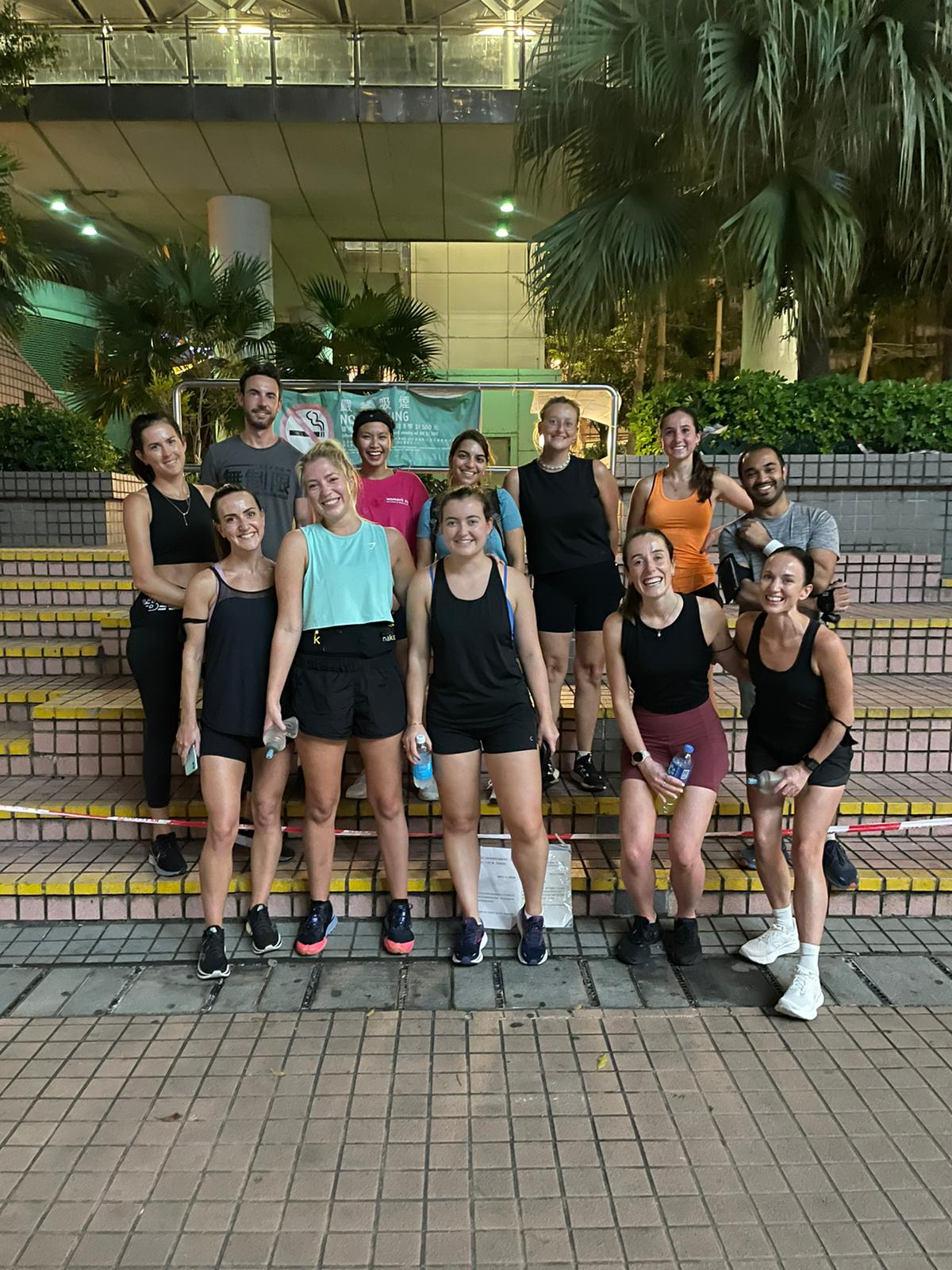
TNN's growth comes from expanding its reach. With its sights set on extending services to underserved communities, TNN has launched peer support groups for various topics and needs, such as cancer, men’s mental health, LGBTQ+ attendees, dealing with breakups and more. Since its modest start for a group of five in London, TNN has widened its reach to over 900 support groups, helping over 8,000 attendees around the world.
But that's not all – by partnering with local organizations to deliver training on mental health literacy and grief, TNN also provides globally assured suicide prevention courses.
“We normalize the conversation,” says Hulton. It’s all about fostering a culture where mental health can and should be talked about.
“There is an issue in Hong Kong where many people have no idea where to get support,” she says, “The more people share, the more we are able to talk about the resources that are available here in Hong Kong.”
With grief came growth in Hulton’s own journey. “When I first started attending peer support groups, I wanted to find a way to ‘get over it,’” says Hulton. But she found that grief is something we may never get over. One does not simply forget. “There will be times it will be just as raw as the day it happened. When I hear a certain song or I cook something I used to make with my dad, I am back there,” Hulton shares.
Maybe, though, one doesn’t need to forget. And with peer support comes the realization that there are others in that same boat. “It never goes away,” Hulton says. “Life just grows around it.”




Comments ()